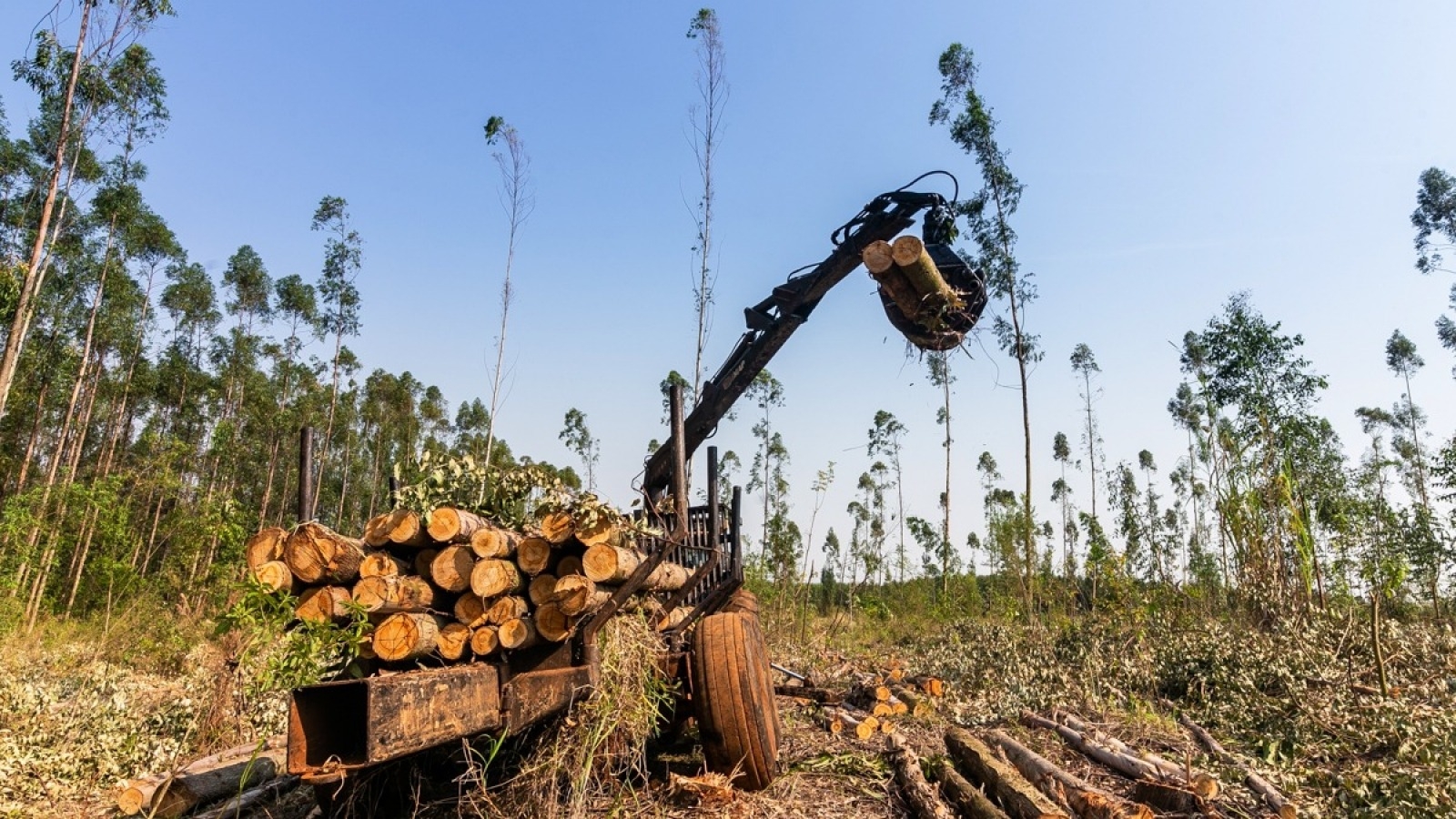Investments and market heating are likely to continue next year
The timber chain in Paraná witnessed a lot of growth in 2021. Both industries and forests had good profitability, pulled by the great international demand. “Since the second half of 2020, the foreign market has come to Brazil to seek the wood it needed. Throughout 2021 we had a very heated market due to the external demand. Consequently, it also affected the forestry area, increasing the productivity in forest, in cutting volume, in investments made”, states Álvaro Scheffer Junior, the chairman of the Paraná State Association of Forest-Based Companies (Associação Paranaense de Empesas de Base Florestal – ApreFlorestas), According to Scheffer, the high value of the American dollar helped the market in Paraná, because it pushed the forestry companies into the foreign market. “This was an added bonus. With the increase in productivity, the high value of the dollar improves the company results in the country”, he points out.
According to ApreFlorestas data, Paraná has approximately 6,100 companies in the forestry segment, and the pulp companies in the state account for 29% of the participation in the country’s sector. For 2020, the expectation is for the State to continue increasing the volume of timber, with new industrial and forestry plants. “Both the industry and the forestry have made investments in the past two years to keep up with this increase in the external demand. “And all of this will start in 2020, with the delivery of industrial and field machinery, says Apre chairman. In his opinion, the perspective is for the market to continue in the same purchase volume. “However, I believe the price will slightly decrease due to the greater offer. This will make the price go down a bit. But I guess it won’t be that much. I believe the market will be able to remain in good levels”, he explains.
In relation to the forestry sector, Scheffer says that 2021 presented a significant increase in new forests, mainly due to the heating of the market. “Everyone realized that currently there is a certain lack of logs in the market. So, this encouraged the producers to increase their planting areas. Mainly among small producers, even those who were not doing anything, went back to plant forests. We can notice that in the availability of seedlings. There was a shortage of it”, he points out.
Even the increase in the soybean planting area did not significantly affect the forestry areas. “What we saw was a migration of areas. The areas with farming profiles had their forests removed and grains planted on them. But this is a natural consequence. You don’t just take an area with the profile for producing food and plant forest on it. That area has to be producing food. The forests migrated to spaces that have no capacity to grow crops, which would be areas with more challenging landscapes. The small producers are mainly doing this: transforming the areas with aptitude, but at the borders of the properties, where one cannot produce grains, people went back to planting forests. And we had not seen this in the past four years. We only saw loss of forestry areas”, he states.
Paraná Wood Group also grew
For the Paraná Wood Group (GPW), which has two activities in the timber sector – Paraná Wood Florestal (PWF) and Paraná Wood Indústria Madeireira (PWIM) -, 2021 was also exceptional. According to GPW owner João Luiz Garcia de Faria, it was “a year of opportunities and of good opportunities to enter a market we had not had access to, which was very productive”. “Both for the forest and for the industry, the prices improved and there was a very good advancement”, he declares.
The group has made hefty investments in both companies. Paraná Wood Florestal purchased a Komatsu PC200 base machine and a Wharatah hydraulic head for cutting and processing eucalyptus logs. It is an imported part and is soon to arrive. The head harvests the eucalyptus and cuts the logs into specific sizes. The full equipment will be able to cut trees of up to four tons and 50-cm diameter. With them, we can work in two shifts, harvesting approximately 200 tons per shift. Additionally, the mechanization will also allow PWF to become able to be internationally certified.
On the other hand, at Paraná Wood Indústria Madeireira, the investments made allowed the company to enter the packaging sector, with the installation of its own wooden pallet factory. “All of that made our revenue increase in approximately 40% from the beginning of the year to now, with an increase also in our profit margin”, Faria explains. In 2022, according to him, growth is the key word. “We already have the purpose of expanding the packaging factory and continue growing, so the investments will not stop”, he declares.

